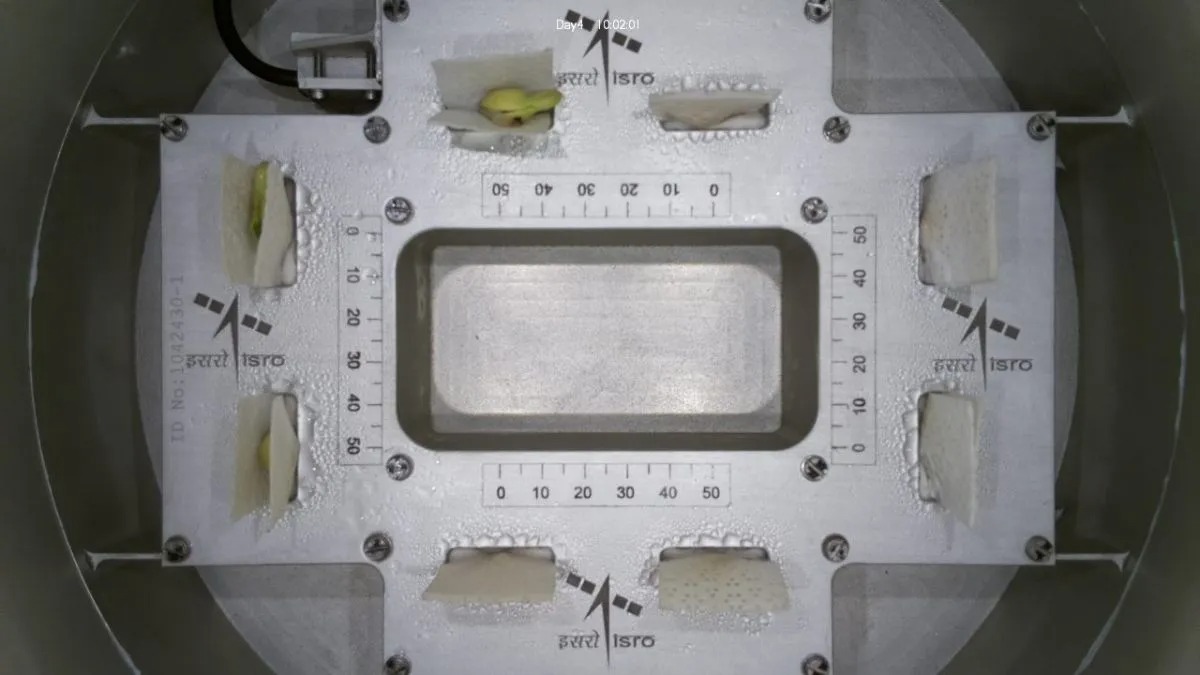
Indian Space Research Organization (ISRO) has done another great feat. ISRO has succeeded in germinating cowpea seeds in space. Scientists hope that soon leaves will also come out of them. Let us tell you that with this, ISRO has taken an important step towards studying the growth of plants in low gravity. This experiment will help scientists understand how plants grow in space, which can help a lot in long space operations.
Seeds were sent into space on 30 December
ISRO gave information about this by tweeting on the social media platform 'X'. It wrote, 'Life begins in space! VSSC's CROPS (Compact Research Module for Orbital Plant Studies) experiment was successfully conducted on PSLV-C60 POEM-4. Cowpea seeds germinated in four days, leaves are expected to come out soon.' Let us tell you that these cowpea seeds were sent with the Spade X mission on 30 December with the PSLV C 60 rocket.
Know why this success is huge
The 'Compact Research Module for Orbital Plant Studies' (CROPS) experiment developed by Vikram Sarabhai Space Centre (VSSC) has taken a significant step towards studying plant growth in microgravity. The experiment was launched on the POEM-4 platform of the PSLV-C60 mission and successfully germinated cowpea seeds in just 4 days and the leaves are expected to emerge now. CROPS aims to understand how plants grow in space, which could be important for crop production in future long space operations.
8 cowpea seeds were germinated
Let us tell you that in this experiment, 8 seeds of cowpea have been grown in a controlled environment, which has active thermal control. Under this, an attempt has been made to simulate the conditions that plants may go through during space travel. This achievement is a huge milestone in India's space biology research. The success of this experiment till here shows India's ability to grow plants in space.
--Advertisement--

 Share
Share



